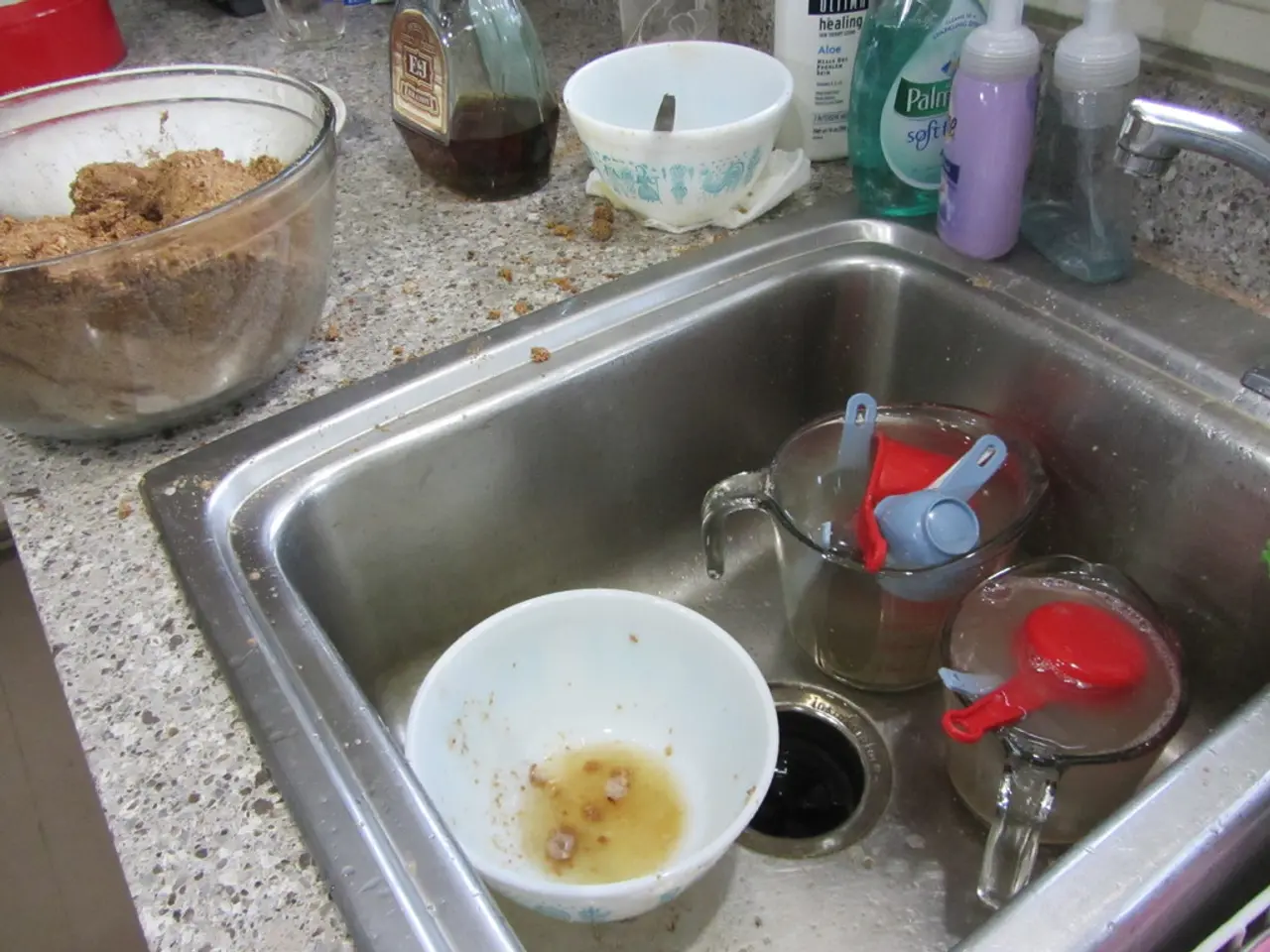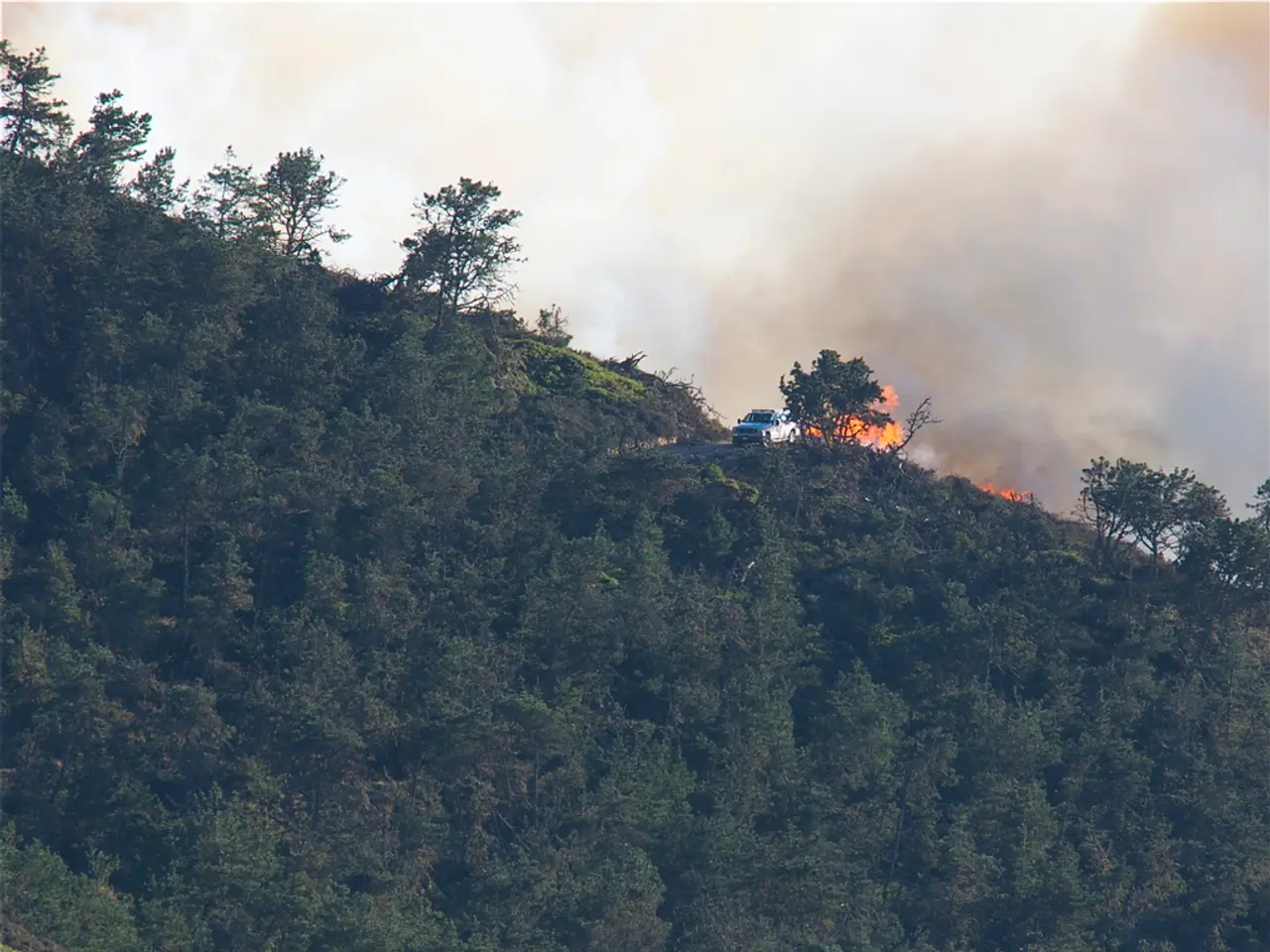Russia stepping up chemical weapon employment within Ukraine's borders
In a concerning development, Dutch and German intelligence reports suggest that Russia is increasingly using prohibited chemical weapons, including chloropicrin, in Ukraine. This deployment, often systematic and on a large scale, has been forcing Ukrainian soldiers out of shelter and into open areas where they are exposed to gunfire.
Ukraine has reported over 9,000 instances of chemical weapons use by Russia since the full-scale invasion began in 2022. The U.S. State Department previously noted the use of chloropicrin against Ukrainian troops. The use of such weapons by Russia violates the Chemical Weapons Convention, to which it is a signatory.
Chloropicrin is a banned substance under the Chemical Weapons Convention, known for its deadly effects in high concentrations in enclosed spaces. Its use violates the agreement and poses a significant threat, according to international intelligence services.
The Dutch Defense Minister has called for tougher sanctions against Russia, highlighting the normalization of chemical weapons use as a dangerous trend not only for Ukraine but also for Europe and globally. However, Russia has denied these allegations, claiming Ukraine is responsible for using banned substances.
The continued use of chemical weapons by Russia is likely to pose a threat, with at least three deaths in Ukraine directly attributed to the effects of these weapons. The Ukrainian General Staff's briefing in May emphasised that the means used by Russia, although not formally classified as chemical weapons, still violate the Geneva Conventions when used in warfare.
The Ukrainian Minister of Defense has reported that Russia has used chemical agents against Ukrainian troops more than 9,000 times during its invasion war. Between February 2023 and June 2025, Ukraine documented over 9,700 cases of Russian troops using ammunition containing dangerous chemical warfare agents.
The German Federal Intelligence Service (BND) and two Dutch intelligence agencies report that Russia is using chemical weapons, specifically tear gas and chloropicrin, in Ukraine. The use of tear gas also violates the Chemical Weapons Convention.
It is important to note that Russia's leadership and its radiological, chemical, and biological defense troops are actively supporting and promoting the prohibited use of chemical weapons. This is a concerning development that underscores the need for international action to prevent further escalation.
In light of these developments, it is crucial for the international community to take a firm stance against the use of chemical weapons in any form, and to hold those responsible accountable for their actions. The Chemical Weapons Convention aims for a global ban on such weapons, and its principles must be upheld to ensure peace and security for all nations.
- Beyond the alarming instances of over 9,000 chemical weapons usage by Russia in Ukraine, as reported since 2022, the deployment of prohibited substances like chloropicrin and tear gas in war-and-conflicts is a serious breach of the Chemical Weapons Convention, which Russia is a signatory, highlighting a need for tougher politics and general-news coverage on this matter.
- The normalization of chemical weapons use, as evidenced by Russia's deployment of banned substances like chloropicrin and tear gas in Ukraine, is not only a threat to Ukraine but also a hazardous trend for Europe and globally, necessitating strong crime-and-justice measures and international action to uphold the principles of the Chemical Weapons Convention and maintain peace and security for all nations.






